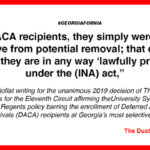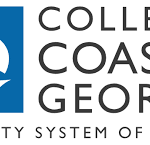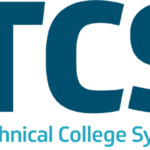
Senate education and Youth Committee
Transcript cost to us: $57.50
Sen Butch Miller “Mr. Pro Tem“: (00:00)
604. Thank you Mr. Chairman.
Chairman Chuck Payne: (00:02)
Now, if you would like to present 601.
Mr. Pro Tem: (00:04)
Be happy to, uh, again, I’m here to present, uh, Senate Bill 601. Uh, this is not a new issue. It’s come before us, it’s one that’s, uh, timely. I wanna stop, uh, start by saying how fortunate I am and my children have been that, uh, in Hall County we have three terrific school systems. My wife Theresa worked in those school systems and, um, all three of my sons attended, uh, those, uh, public school systems, uh, one of the school systems rather. And, uh, and two of my children required a special accommodations, uh, due to health conditions. Uh, I couldn’t be more thankful for the teachers, the employees of our school systems, not just in my community, but around the state. However, every child is different, every system’s different and not everyone in our state’s blessed with the opportunities my children have had.
Mr. Pro Tem: (00:58)
And, uh, I think that we’ve seen through the pandemic that they’re are more options, parental options for our schools. Uh, another statement I’d like to make is regarding the disinformation we’ve heard about the, uh, tactics that have been used on both sides of this issue. Um, I’m here to bring conversation back it’s important, uh, my view and that’s the children and the families of our state, looking for opportunities to achieve the best education possible for their children. And whether the student requires accommodations that may be, uh, unavailable in their current option, or the student is in a setting that is below the standard, 601 provides opportunities for these children.
Mr. Pro Tem: (01:39)
601 provides the, um… Establishes the promised scholarship for Georgia families. The bill is subject to appropriations and it is not a mandate, it would provide $6,000 per family, which is roughly the average cost per pupil in our system and the money be used for the tuition and education with a $500 cap on transportation. The Georgia Student Finance Commission, which does a… In my view, does a fantastic job overseeing a number of educational scholarship programs, is the agency to oversee the program. And it has additional guardrails that would include standard requirements for participating, uh, uh, educators as well as the audit program and is to be audited annually by the Department of Audits and, and Accounts.
Mr. Pro Tem: (02:20)
And again, the number of students eligible is determined by appropriations. Um, on that note, I would point out that it does not take away from existing school funds, but provides money for the child. Our children are our future, and to many of our, our situations are not, uh, are not satisfactory. Additionally, education provides individuals the same chance to improve at their own trajectory, as well as their families. For those reasons, it is the utmost important that we provide parents and their children, the options they deserve. I ask for your favorable consideration.
Mr. Pro Tem: (02:55)
Uh, going into the bill itself, I would, um, uh, begin by pointing out on line… on page… Uh, I’m working from, um, Senate Bill 601, LC 490911, uh, just to set forth with, uh… On page two, we have, uh, uh, clarifications and definitions and the then, uh, going to, uh, page three, uh, on line 59. We point out this no more than $500 per year for transportation, on page four, on line 72, we point out that we, we would, the, uh, those students, parents currently reside within Georgia and United States citizens, or if not citizens and they’re lawfully present in the United States. Uh, line 76, a child be enrolled in public school in this state for at least six weeks prior, uh, line 79, the parents, the student’s parents sign a, promising to provide the education in at least the subjects of reading, grammar, mathematics, social studies and science. And, uh, we can go through line by line, but I know the time is short, so I will abbreviate my comments at that point. And again, I ask for the, for the committee’s, uh, favorable consideration.
Chairman Chuck Payne: (04:15)
All right, thanks, sir. Um, just to make sure. LC 490911 correct?
Mr. Pro Tem: (04:26)
That’s correct.
Chairman Chuck Payne: (04:26)
Alright. We do have any questions?
Chairman Payne: (04:35)
Um, I will call on Senator Jackson once more.
Senator Jackson: (04:37)
Thank you Mr. Chairman, Mr. Polchek thank you for being here again this morning, sir. Does this bill call, call for a physical (he meant “fiscal”) note?
Mr. Pro Tem: (04:45)
No, sir. It does not.
Senator Jackson: (04:47)
What’s the estimated cost? this how much do you think this will-
Sen Butch Miller, “Mr. Pro Tem”: (04:50)
Well, it’s just within appropriation. So it might be, I mean, they might not appropriate anything.
Senator Jackson: (04:57)
… Will this bill take away from the existing school funds? [inaudible 00:05:01]education?
Mr. Pro Tem: (05:02)
No, sir, it won’t and the reason I say it won’t take away from existing school funds, is if a voucher removes less in funding from a school’s district’s budget, then the district would’ve spent, If that student stayed enrolled, then the district actually comes out ahead. So if the, so if the, if we take that child that’s $6,000 and that $6,000 goes somewhere else, that school still their, their cost hasn’t changed, but their money has changed in that they’re still getting their local money. So I don’t think that it, that it damages the local school system in any way.
Senator Jackson: (05:42)
Okay, sir.
Mr. Pro Tem5:43)
Thank you. Sen Parent 00:05:44]
Sen Parent: (05:46)
Thank you, Mr. Chairman. Thank you. Um, Mr. Pro Tem. I just have a couple questions. Um, so I noted that in the bill, the student, I think, would have to attend public school for six weeks. Is that correct?
Mr. Pro Tem: (05:58)
That’s correct.
Sen Elena Parent: (05:59)
What, uh, can you explain where that number came from? Why six weeks?
Mr. Pro Tem: (06:04)
Well, I think that, um, six weeks is a reasonable amount of time that we would say that we have established a, um, an opportunity for the parent to decide if that’s a, um, appropriate learning environment for that child. And it’s an arbitrary number.
Sen Parent: (06:18)
Hmm. Okay. Um, a couple more questions. Thank you. Um, does this legislation, and in terms of who receives the 6,000, is this universal or does it take family income into account?
Mr. Pro Tem: (06:30)
Does not take family income into account.
Sen Parent: (06:35)
Well, um, so, so that, that then brings up a co a couple other questions for me. Um, are you aware that 71% of private schools in Georgia costs more than $6,000 to attend, and the average is $11,000?
Mr. Pro Tem: (06:51)
I was not aware of that, but thank you very much for informing of that.
Sen. Parent: (06:54)
Right? So since that’s the case, and certainly in Metro Atlanta, there are a lot more.
Mr. Pro Tem: (06:58)
Well, I would also ask you, uh, what is the, uh, diversity makeup of the private schools? I think this will have an opportunity to change that.
Sen Parent (?): (07:08)
Well, certainly they’re less diverse than the public schools, but, but, but that gets-
Mr. Pro Tem: (07:11)
Without question.
Sen Parent: (07:13)
… but you and I, you and I are on the same page here. What, my point, my question to you is, since given that they’re less diverse because they are expensive to attend, and this bill does not give children enough to attend even the average, In fact, it’s, it’s, it’s, um, a little over half, what it, what it is for the average private school attendance, not to mention anywhere in Metro Atlanta, where they’re significantly more expensive, you know, aren’t, you sort of putting private school in reach of, of some, but really leaving out, the, the big, much bigger proportion of kids who wouldn’t be able to take advantage of this?
Mr. Pro Tem: (07:47)
If you would like to discuss the, uh, changing it to a higher number, I’d certainly be, I’d certainly listen to you.
Sen Parent: (07:54)
Well, it’s your legislation, do you think it should be, I mean, I think, you know, Metro Atlanta, you know, often they’re probably $24,000 a year, per tuition per child. I mean, so, and if you want both the families to go, you know, yeah. It probably needs to be more like 60,000, um, a year. Wouldn’t you agree? (laughing)
Mr. Pro Tem: (08:12)
Well, that’s, uh, your math and your, uh, opinion, but thank you very much for sharing it.
Sen Halpern: (08:25)
Hello again, um, just a question because one of the things that we all need to keep in mind and we pass a, you know, we bring forward a lot of bills that really do have an impact on public education. Like public education is constitutionally mandated. I wanna just talk a little bit about some of the unintended consequences of this bill and ask, um, because the $6,000, the truth is if you’ve got a lot of kids who decide to move their kids out of their public local public education system, the reality is, that those schools still have overhead costs that are fixed. They still have teachers, they have buildings, they have planning that they have to do. And it does in fact, take a drag on those schools and the school district. The dollars aren’t just transferring for the child alone. There’s parts of those dollars that are spent on fixed costs. And so my question is, how does this bill contemplate at all Um, the fact that it destabilizes our public school system by allowing parents to say for six weeks, their children could be in a public school and then move them someplace else with those dollars?
Mr. Pro Tem: (09:56)
I think that the, the variable and the fixed cost, the fixed cost of operating the school doesn’t change.
Sen Halpern: (10:07)
Right.
Mr. Pro Tem: (10:08)
The variable cost changes by the student. So number of students, but if you have 28 students in a class and you have 27 students in the class, then you still have the same cost to run that class. If you have more students come in and you have to hire another teacher, and or if you have students leave and you hire one less teacher, then that changes the cost. I think that if you take this $6,000, that was going to be used in that particular school system and move it so that that child has a choice somewhere else, that parent has a choice somewhere else, your cost typically will not have changed. So the local money that’s still coming to that school. Let’s just say there’s 28 students, and let’s just say the local school money was $28,000, just because it’s easy to do that, if you had 27 students, wouldn’t you have more money per student? If you changed from 28 students to 27 students, wouldn’t you have more money locally per student?
Sen Halpern: (11:18)
Maybe, (laughing) but that’s, but the, but what you said about the cost being fixed, that’s the piece that’s not that, that’s the part that changes that variable. I know because this bill is talking just about the student piece, right? It costs $6,000 on average to, to teach our, and so that $6,000 should just be portable, but it doesn’t actually just cost $6,000 a student. And there is variation between ti levels of school. I, I I’ll tell you, I have kids in private school and I have kids in public school, even in private school, there’s there’s differences, high school, and I have a senior, costs more than elementary. So there’s there’s variables generally, but that’s that exists in, in our public education too. It costs more to teach certain kinds of students than it costs to teach other students.
Mr. Pro Tem: (12:14)
Without questioning. Um, my particular children. Um, my oldest child, um, needed certain accommodations-
Speaker 5: (12:22)
Right.
Mr. Pro Tem: (12:23)
… And, you know, he was nonverbal. And the only way for him to communicate was through a communication board. And most school systems would not have the resources to provide a communication board. And the way he was able to be accommodated, was that we were able to, to find that if we, you know, the, each child is different, each opportunity for that child is different. We want every child to have the opportunity to establish a trajectory, to establish a pattern, establish, um, um, a history of success. So that if it’s special accommodations for a special needs child, fine. If it’s a child that maybe he is not, um, is being bullied, fine. Give him an opportunity to go somewhere else. If there’s a child that’s being, um, that it’s just not the right fit for that child, educationally or culturally, they need to have options. And that’s what this bill’s about.
Sen Halpern: (13:30)
One follow up. If I may, I, I think that, um, I’m certainly in agreement with the fact that every child is different and every child may need different kinds of schooling options. Um, I, I’m still concerned though about our public school system, the things that we require of our public school system and the things that we do not require of our private school system. And so, um, this bill seems to be another bill that… Didn’t we just pass one of these last year? uh, around, uh, and I wish I knew the bill number off the top of my head, but we did, we just passed another bill like this that actually does allow for right, for special needs. And we expanded the definition of special needs. And so I’m wondering… We’ve yet to see even the effects of that, and now we’re coming back again, this next session saying, “No, let’s make even more dollars portable outside of our public school education.
Lawyer who accompanied Mr. Pro Tem Sen Miller : (14:36)
If it pleases the committee as a point of clarification, we’re talking about a program that would be subject to appropriations above and beyond the school funding that would’ve been previously set. So it’s not taking money away from the school, school system. We’re talking about students that would’ve been enrolled for six weeks, the preceding school year, not immediately. So no, one’s no one’s, you know, venue hopping or shopping. [inaudible 00:14:58]
Chairman Chuck Payne: (14:57)
All right. Um, who’s number four?[inaudible 00:15:06]
Sen Dolezal: (15:12)
Thank you, Mr. Chairman. Thank you, Mr. Proton for, um, for being here, I wanna have, make an observation and then, um, ask you a couple questions if I may. uh, we’re hearing two different arguments that diametrically, diametrically opposed to each other. One, is that this is so expensive. That it’s of little value yet so many kids are gonna take advantage of it that it’s gonna erode the school system-
Mr. Pro Tem: (15:31)
Exactly.
Sen Dolezal: (15:31)
… So I think that we need to pick which side of the argument, um, we’re, we’re gonna, we’re gonna fall under today, but you unpack this idea of marginal cost. And I think this is very important. I wanna spend a minute on it if we can.
Mr. Pro Tem: (15:41)
Please.
Sen Dolezal: (15:41)
Um, districts and we, I think it’s important to back up with about, talk about how districts are funded. It’s three buckets of money, local tax digest, the state funding, federal funding, in most districts that local funding is between 40 to 50% of the total amount of funding.
Sen Dolezal: (15:57)
The, the, um, the state funds that are 40 to 50 and the feds are about 10. Um, and for that 10%, the federal government gets to put all sorts of tentacles into our public education, which is interesting. However, um, you mentioned that if a student leaves, um, there’s still costs that remain and then there’s costs that stay, isn’t it true that, um, we have, uh, a professor Dorphin when he was at UGA, before he joined, um, the, the fiscal, the budget office here. Did a study on 159 separate counties and looked at the marginal cost and, and Mr. Proton you’re from Hall County, is that correct?
Mr. Pro Tem: (16:29)
That’s correct.
Sen Dolezal: (16:30)
Um, just looking at his study, he will looked at the marginal cost for each county, the marginal cost of the cost that would leave when the student leaves is 9,317. Um, I’m from Forsyth County, Um, and the, the cost is $7,022. The, the, what county are you in? You in Lumpkin Dunpkin county, um, Lumpkin county, you represent about 10 of ’em, but Lumpkin County’s 9,362. So just looking at those three counties, in fact of the 159, over 150 of them have a marginal cost that’s higher than $6,000.So what that means is that when that student leaves a cost greater than $6,000 leaves. So to your point, because the local funding-
Mr. Pro Tem: (17:13)
Yes.
Sen Dolezal: (17:14)
… The dollars that the district has per student actually increases. So to break that down to simple math, if, if, if a, if a, if a district had, um, $1 per student with 10 students, and now you have the same amount of dollars, $10 of local funding, you only have nine, you, the amount of money that remains in the district is higher. Isn’t that true?
Mr. Pro Tem: (17:37)
That’s correct.
Sen Dolezal: (17:39)
Um, and, and you mentioned this being subject to appropriations, and, you know, when we talk about these kinds of bills, it’s always presented as binary, um, that there’s this bucket of money that exists for public education-
Mr. Pro Tem: (17:50)
It’s static.
Sen Dolezal: (17:52)
… It’s static, it’s block funded the reality, though, if you could talk about the QBE formula, maybe for those that are watching online, or those that are here, isn’t it true that’s done by headcount?
Mr. Pro Tem: (18:00)
That’s correct.
Sen Dolezal: (18:01)
And so if, if those students leave, whether the $6,000 goes with them or not, isn’t it true that the funding from the state to the district changes?
Mr. Pro Tem: (18:08)
That’s correct.
Sen Dolezal: (18:09)
I brought the budget today. Mr. Proton, the budget is, is, is quite large. It’s 404 pages. Um, and this is full-
Mr. Pro Tem: (18:18)
Don’t read it all.
Sne Dolezal: (18:18)
… I won’t read it all,(laughing) but this is full of things that we fund department of banking and finance, department of behavioral health, department of community affairs, department of community health, department of corrections. Isn’t it true that every dollar that we spend in 400 and something pages is also a subject to appropriations?
Mr. Pro Tem: (18:33)
That’s correct.
Sen Dolezal: (18:35)
And that, that, that your plan, your bill no more takes funding from public education than buying this bottle of water, building a road, paying our salaries. And, um, you know, that, that we’re gonna focus on this relatively small expense as it relates to the 29, soon to be $30 billion budget. When in reality, there’s a whole lot of things here, um, that you could construe “compete with public education for funding.?”
Mr. Pro Tem: (19:00)
That’s absolutely true.
Sen Dolezal: (19:02)
Thank you, Mr. Chairman.
Sen Freddie Sims: (19:03)
Thank you, Mr. Chairman. Um, just a couple of statements, no questions. Um, I don’t, I think all of us agree that children, whether they’re in public or private or parochial or whatever kind of schools or parents, let me say parents rather than children, parents deserve to have a choice. A I don’t think anybody on this committee denies that they should not have a choice. I think most of the thems have children that have been in private schools and public schools. And I made that choice for my daughter years ago. Um, but my, my concern is the decimation of public education in the state of Georgia over the last decade. Now, education in Georgia is probably scrutinized more than any appropriation, the appropriations that is received, than any other entity that we appropriate for.
Sen Sims: (20:12)
Um, someone mentioned, and I, it may, may have been Senator, um, Miller that they can also take, they can take these dollars and, uh, perhaps in increase diversity in private schools, there are entrance exams. There are many ways to eliminate, get rid of peak children that they do not want. I, I do understand that here again, we are going back to choice. People make a choice, but not at the expense of the other children. And please don’t tell us that they’re gonna take these dollars, get a better education, or they will be with open arms accept into wherever they choose to go, because that’s, that’s not true.
Sen Sims : (21:00)
We see children every day that if they got the vouchers or if they choose to go someplace else, if they are discipline problems, if they have, uh, disabilities that the, the schools are not equipped to handle, they don’t keep them. If they look like me sometimes going into private education settings, they don’t want them. If you can’t get on a train, trying to flee a war, uh, probably won’t be able to get in a school either. So those are the issues that disturb me greatly about the voucher bills and the choice, which is fine. I I’ve never been against choice, and I don’t think any, it, any of us have ever been against choice, but say exactly what will happen to those children and their parents rather than mask it with, uh, statements that aren’t necessarily, uh, viable. Thank you, Mr. Chairman.
Chairman Chuck Payne: (22:06)
All right. We have nine minutes till [inaudible 00:22:07] Um, I’m not gonna be able to have input say on this. I prepared to go ahead. And I, I will say that there’s eight people who signed up in support of the bill and people who showed up here today opposed to the bill that it is for the sake of time and about tomorrow morning, we can start a session tomorrow, all bills have the gather communities. That’s why we’re doing this this morning. So I will, um, entertain a motion at this time.
Sen Parent: (22:39)
Yeah, I got one. Um, Mr. Chairman, um, I really, um, on behalf of the public, um, Many of whom have come for two meetings to be heard on this particular bill, because it’s so consequential. Um, I really object to rushing a bill of this consequence and not allowing people who have come to the capital two times to be heard on it, to speak before trying to jam it out a committee. And I would like to move to table this until it can be thoughtfully considered.
Chairman Chuck Payne: (23:11)
Right. I have a motion to table.
Sen Jackson: (23:18)
Second, sir.
Chairman Chuck Payne: (23:19)
I have a second. All those in favor of tabling this bill, raise your hand. 1, 2, 3, 4. All those opposed. 1, 2, 3, 4, 5, 6. All right.[inaudible 00:23:41] Motion,[inaudible 00:23:43]
Sen Albers: (23:43)
Mr. Chairman, I move we pass Senate Bill 601 LC 490911 [inaudible 00:23:53]
Chairman Chuck Payne: (23:59)
All right. All those in favor, raise your hand. 1, 2, 3, 4, 5, 6. Those opposed? 1, 2, 3, 4
Mr. Pro Tem: (24:20)
Thank you, Mr. Chairman. Thank you. Members of the committee.
Chairman Chuck Payne: (24:27)
This meeting is adjourned.



































You must be logged in to post a comment.